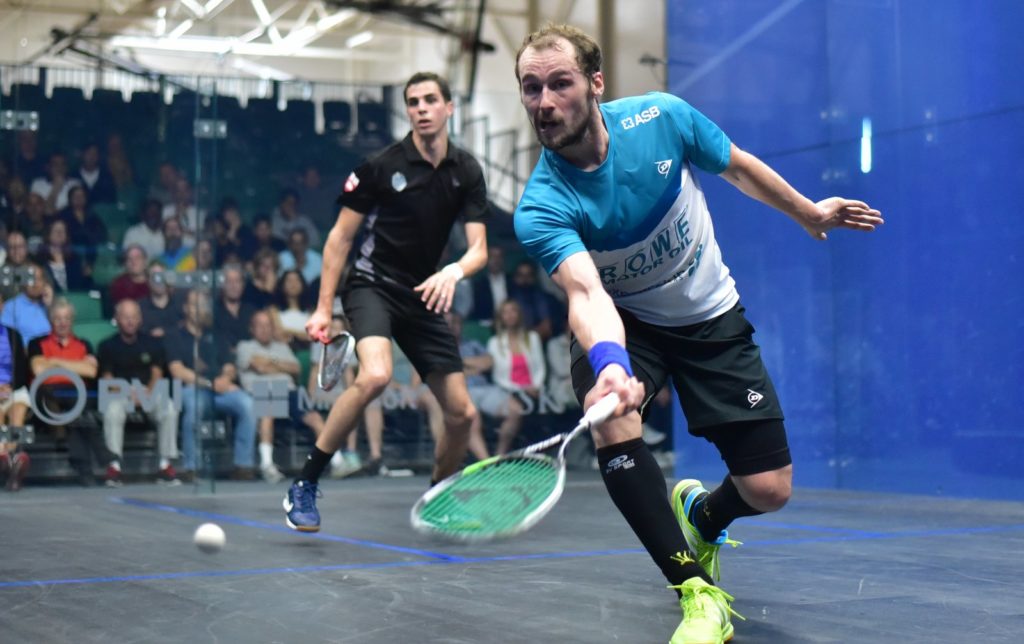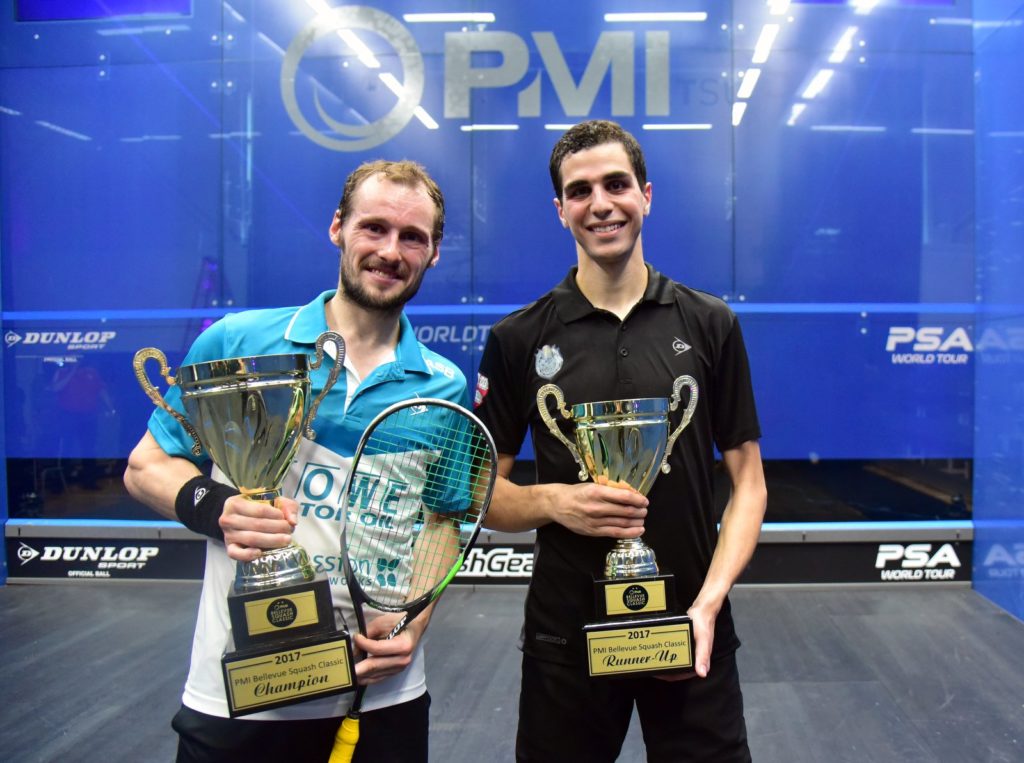
by Matt Lombardi
This past week Gregory Gaultier took another step toward redefining his pro squash career with a masterful performance at the PMI Bellevue Classic. Staged at the Boys and Girls Club Hidden Valley Field House just outside of Seattle, the sixteen-man $150,000 tournament was the richest event ever for an event its size.
Gaultier pocketed over $25,000, after working through the draw without dropping a game. In Saturday’s final, he took out Egypt’s Ali Farag 12-10, 12-10, 11-8 to win his fortieth PSA title. The win returns Gaultier to the world No.1 ranking, which, due to the PSA’s ranking algorithm, he’d lost in May despite not dropping a match.
The Frenchman is a familiar figure to pro squash fans. For the past decade he’s never been ranked lower than sixth in the world, occupying the number-one spot for nine months and winning the World Championship in Seattle in 2015. At thirty-four years old, he’s in the midst of an epic PSA winning streak that currently stands at six tournaments and twenty-seven matches—a level of play that’s bound to elevate his status in the pantheon of squash’s all-time greats.
Throughout his career, Gaultier has been known for wearing his heart on sleeve—pumping his fist and strutting around the court when he’s won a crucial point, pouting and crying to the heavens when he hits the tin or feels he’s been dealt an injustice by the referee. It’s been a common sentiment that if he could rein in his emotions, he would be nearly unbeatable.

As recently as January he delivered an astounding display of hot-blooded melodrama against Mohamed Elshorbagy in the semifinals of the Tournament of Champions. In the months following that notorious match, though, he seems to have found his long-illusive inner peace. His play has been relaxed, cool and clinical as he systematically has beaten one opponent after another. It’s a chicken-and-egg situation: is Gaultier playing well because he’s so calm, or is he calm because he’s playing so well?
Whatever the case may be, his newfound composure was on full display in the PMI Bellevue final against Farag. The quality of play was through the roof. Farag is a unique talent—he seems to glide effortlessly around the court, his thin limbs acting like rubber bands as he stretches to reach shots and then contracts back to the T. He was Gaultier’s equal through much of a match that was distinguished by long, spectacular rallies. Farag tried to disrupt the Frenchman’s rhythm with a mix of crosscourt drives and boasts; Gaultier countered with classic tight length and pinpoint shot-making. Both made one jaw-dropping retrieval after another.
Farag had one game ball in the first game and four in the second, but at those crucial moments Gaultier kept his focus and elevated his play. He took the first game with two immaculate cross-court kills, and pressured rare errors from Farag to save those games balls in the second. The intensity and entertainment value were as high as imaginable for a three-game match.
While the quality of the final was exceptional, the match of the tournament was the back-and-forth five-game quarterfinal between two veterans, James Willstrop and Borja Golan. After losing the first two games, Golan threw caution to the wind and went on a run of relentless, error-free attacking squash. For two games he was on fire, taking the third 11-2 and jumping ahead 10-1 in the fourth before closing out 11-6. The tension of the fifth game brought Golan back down to earth, but he still managed to scrap to a 10-7 lead, earning a conduct warning along the way. Willstrop looked weary, but he dug in and took advantage of loose balls to pull back even at 10-10. He then delivered his trademark shot, a spirit-crushing backhand drop, to reach match ball, and finished with an unreturnably tight backhand drive. The crowd was stunned by the remarkable comeback.
The tournament was also notable for the return of injury-plagued star Ramy Ashour. His first-round match was only his seventh PSA match of the year, and the first since retiring injured in the semifinals of the British Open in March. Ashour is famous for returning in top form after long layoffs, but things didn’t pan out that way this time. He was beaten in the second round by Marwan ElShorbagy 11-8, 12-10, 5-11, 11-6, in a match of short rallies, finished with some beautiful winners but also an uncharacteristically high number of errors from both players. Ashour’s movement looked tentative at times, but the good news is that he completed the match with his body intact.
